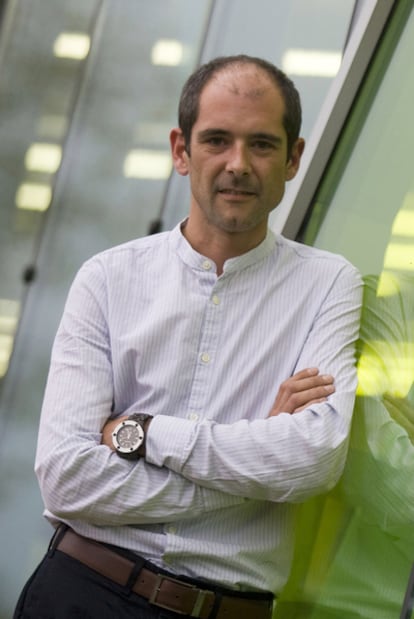"ETA doesn't need to say sorry but it must recognize it has caused irreparable harm"
Paul R¨ªos' peace organization Lokarri helped to organize the conference that led to the terrorists' ceasefire declaration
Part of the leftist nationalist community in the Basque Country, peace organization Lokarri was one of the organizers of the conference that produced ETA's declaration of a definitive ceasefire on October 20. Its coordinator, Paul R¨ªos, gave EL PA?S an update on the current situation.
Question. Should we be satisfied with ETA's announcement?
Answer. I think that any of us would have chosen a different setting and different wording for the announcement, but it was up to them to do what they had to do as they thought best. But they made one thing very clear: they were definitively ending the violence. Anybody who has any doubts about their willingness to stick to this announcement should remember that it is now impossible for the organization to go back on its word: the vast majority of Basques want an end to the violence; as do the Basque nationalist leftist parties; as do all those who attended the conference. There is no going back.
Q. Do you see this as the defeat of ETA?
A. I don't like to talk in terms of defeat. I think that what has been clearly defeated is the use of violence as a way of resolving the Basque Country's problems. This is what really matters, and what will be the basis for building the future.
Q. ETA still hasn't said that it is going to disband, so people remain skeptical. They don't believe ETA.
A. Five years ago, people were calling for ETA to announce that it was definitively ending the use of violence. Now they are calling for it to disband; tomorrow it will be about weapons, then that they apologize, and pay compensation. The right wing in this country is very unhappy about all this because it has now had a very useful political toy taken away from it. History doesn't happen in a single day; it is a process. That said, the question of ETA's weapons will have to be addressed.
Q. Does ETA need to say sorry for what it has done for things to move forward?
A. It's not so much a matter of saying sorry, as recognizing the harm it has caused: asking forgiveness means asking for a response from the other party. No victim wants to be put in the situation of having to forgive. The important thing is for ETA to see what it has done, and to recognize openly that it has caused irreparable harm to many, many people. The point is that this must never happen again.
Q. Your organization opposes ETA, but you do not want to see it humiliated.
A. It would be humiliating to force ETA to ask for forgiveness; to try to get it to say that it has been defeated and that it was all a mistake. Or to ask the Basque nationalist left to renounce its political objectives because they have been tarnished by the violence of the past. We also reject the idea of the state exacting its revenge: demanding that ETA activists renounce violence, and if they recognize the damage they have caused, still making them serve a 40-year sentence.

Tu suscripci¨®n se est¨¢ usando en otro dispositivo
?Quieres a?adir otro usuario a tu suscripci¨®n?
Si contin¨²as leyendo en este dispositivo, no se podr¨¢ leer en el otro.
FlechaTu suscripci¨®n se est¨¢ usando en otro dispositivo y solo puedes acceder a EL PA?S desde un dispositivo a la vez.
Si quieres compartir tu cuenta, cambia tu suscripci¨®n a la modalidad Premium, as¨ª podr¨¢s a?adir otro usuario. Cada uno acceder¨¢ con su propia cuenta de email, lo que os permitir¨¢ personalizar vuestra experiencia en EL PA?S.
En el caso de no saber qui¨¦n est¨¢ usando tu cuenta, te recomendamos cambiar tu contrase?a aqu¨ª.
Si decides continuar compartiendo tu cuenta, este mensaje se mostrar¨¢ en tu dispositivo y en el de la otra persona que est¨¢ usando tu cuenta de forma indefinida, afectando a tu experiencia de lectura. Puedes consultar aqu¨ª los t¨¦rminos y condiciones de la suscripci¨®n digital.








































